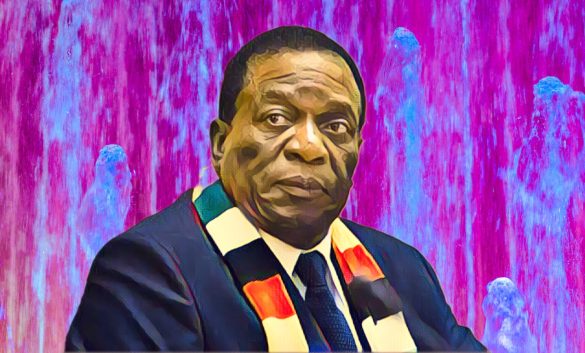KEY POINTS
-
ZANU-PF factions reignite efforts to extend President Mnangagwa’s term beyond constitutional limits, sparking internal and public backlash.
-
Legal experts warn that the proposed amendment violates constitutional provisions and could cost the state over US$40 million.
-
Public sentiment and opposition leaders remain firmly against the move, citing threats to democracy and the rule of law.
Efforts to extend President Emmerson Mnangagwa’s tenure beyond Zimbabwe’s constitutional two-term limit are once again gaining traction within the ruling ZANU-PF party, reigniting a national debate on governance, legality, and the future of democratic principles in the country.
Key figures within ZANU-PF have publicly thrown their weight behind the so-called “2030 Agenda” — an informal political movement aimed at allowing President Mnangagwa to remain in office beyond 2028. These calls, however, are creating visible rifts within the party and drawing criticism from legal experts, opposition figures, and civil society groups.
The Zimbabwean Constitution, adopted in 2013 after a public referendum, explicitly limits the presidency to two five-year terms. To allow a third term, Parliament would need to amend the Constitution with a two-thirds majority in both houses — a move complicated by provisions that bar sitting presidents from benefiting from such amendments.
Constitutional hurdles and growing opposition raise doubts over the legality and morality of term extension
Speaking to ZANU-PF supporters recently, national housing minister Daniel Garwe reaffirmed the party’s commitment to extending Mnangagwa’s rule. “Our president is the only one with the vision to lead us until 2030. That remains our focus,” he reportedly told a rally in Mashonaland West Province.
However, internal divisions have begun to emerge, with some senior party members reportedly aligning themselves with Vice President Constantino Chiwenga as a preferred successor. This intra-party contest is further complicating the unity of ZANU-PF as it navigates an increasingly uncertain political landscape.
Former Finance Minister and opposition figure Tendai Biti issued a sharp rebuke of the third-term push, warning of serious consequences. “They remain unrelenting on their quest for the vulgar 2030 Agenda. They think they can bribe anyone and everyone. The citizen is not anyone and everyone. We will fight back and resist the emasculation of our constitution, rule of law, and our dignity,” he posted on X (formerly Twitter).
According to MDC leader Douglas Mwonzora, implementing a third-term referendum could cost taxpayers up to US$40 million — a sum critics argue could be better spent on social services amid a fragile economy and soaring unemployment.
Legal scholars have also weighed in, noting that any attempt to amend the constitution for personal political gain sets a dangerous precedent. According to constitutional lawyer Alex Magaisa, such moves “undermine the rule of law, institutionalize impunity, and expose Zimbabwe to authoritarian backsliding.”
Political analysts say the term extension push is part of a broader trend across Africa where incumbents manipulate legal frameworks to entrench themselves in power. A June 2025 report by the Institute for Security Studies (ISS) warned that “weaponizing legal amendments against democratic norms is becoming increasingly common among ruling elites.”
Public opinion remains largely skeptical, with growing calls for civic engagement to defend the country’s constitutional framework. A recent independent poll by the Zimbabwe Democracy Institute showed that over 70% of respondents oppose any constitutional change that allows a third term for Mnangagwa.
Meanwhile, some grassroots members of ZANU-PF have expressed quiet concern about the ramifications of pursuing an agenda that may alienate voters ahead of the 2028 general elections.
The current push comes amid ongoing economic struggles, a weakening currency, and international pressure to uphold democratic norms. Regional bodies like the African Union and the Southern African Development Community (SADC) have yet to weigh in formally but are closely monitoring the situation.
As the debate intensifies, Zimbabwe appears to be at a political crossroads, where the ruling party must choose between upholding constitutionalism or embracing the well-worn path of authoritarian consolidation.


